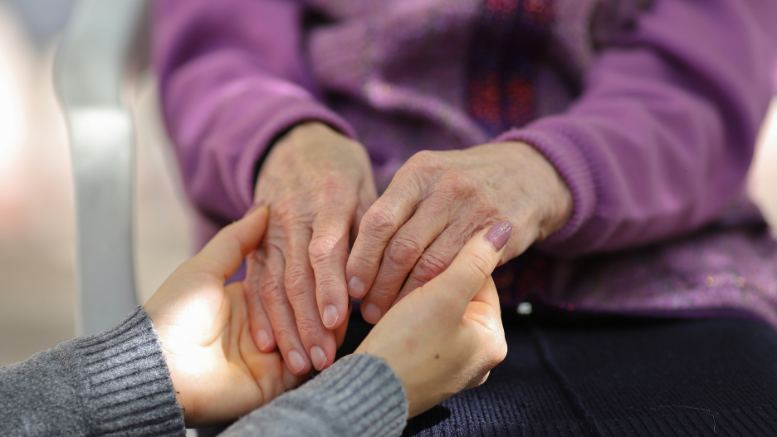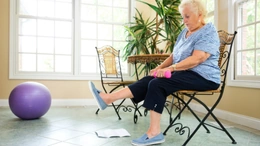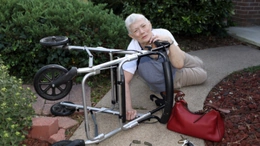Caregiver Support: Essential Resources For Family Caregivers

It is fulfilling and yet challenging to take care of a loved one. Most of the family caregivers perform this task without much preparation or assistance. Gradually, the pressure may result in burnout, financial stress, and ill health.
Fortunately, most of them understand that caregivers can receive assistance and become equipped and balanced through a variety of resources that are available. There are training, financial, and emotional support tools that can be used to make caregiving less stressful.
The most important thing is knowing where to obtain assistance. The list presented in this guide reveals key resources that every family caregiver must have. Such support can make a difference, whether you are new to caregiving or have been doing this for many years.
Why Support Is Crucial For Family Caregivers
Family caregivers have to balance employment, family, as well as caregiving at the same time. Pressure may easily build up when one does not have someone to turn to for caregiver support. One of the greatest challenges for caregivers is emotional stress.
They are likely to experience constant worry, tiredness, and a sense of guilt. Isolation of many caregivers is also very real, as the caregivers spend most of their time at hospitals or at home. This might eventually end up causing depression or worry.
Another issue is physical health. The lifting of an individual, owing to an injury, taking care of the shower, or shifting someone around can lead to physical strain. Caregivers also experience a lack of sleep and skipping meals, which compromises their health.
Another big problem is financial strain. Other caregivers either cut down the number of work hours or leave the job altogether to support a loved one.
Others invest their own money in medical supplies, travel, or house modifications. These costs can be very high without the financial backing of these individuals.
Top Resources Every Family Caregiver Should Know About
Here are the top resources for every family caregiver:
Educational And Training Resources
Figuring out how to care appropriately will make the work less strenuous and safer for you and your loved one.
- Hospitals, community colleges, as well as online training offer training that is either free or low-cost.
- Some websites assist with webinars, how-to videos, and articles, the Family Caregiver Alliance, the AARP. They include such subjects as medication lists, dementia, safety of mobility, and so on.
- There are also some face-to-face workshops organized by some local health departments and nonprofit agencies. They are wonderful spots to question and develop practical skills.
Most disease-specific groups provide specific training if you are caring for someone with a particular condition, such as Alzheimer's or Parkinson's.
Emotional And Peer Support Networks
Telling people you know what you struggle with will make you feel less alone. In-person and online support groups provide a secure environment in which one can share, vent, and learn in the community.
Such organizations as the Alzheimer's Association, the Caregiver Action Network, and the Well Spouse Association organize support groups and forums. Lots of them are free and accessible either by phone, video, or chat.
Weekly or monthly caregiver gatherings can take place at local hospitals, senior centers, and community centers.
A portion of the caregivers also gets the benefit of talking to therapists or counselors. Such pros will be able to assist in the management of stress, depression, and family conflict. Most insurance programs include mental health services.
Financial And Legal Assistance
It may be costly to take care of another individual. However, there are programs and benefits that can assist in decreasing its costs.
- First, make inquiries to Medicaid and your local Area Agency on Aging. They can provide finance to take care of at-home expenses, transportation assistance, or safety devices at home.
- Research tax credits and deductions for caregivers. Medical expenses and some kind of caregiving costs are deductible by the IRS, provided you qualify.
- It should also include legal assistance. There, they should have advance directives, power of attorney, and guardianship papers. There are nonprofit legal aid groups that can provide free or inexpensive legal advice to caregivers.
- The National Council on Aging has a tool known as BenefitsCheckUp that assists you in identifying the programs that your loved one can receive, such as housing, food, and healthcare.
Respite Care And In-Home Services
It is necessary to have breaks. Respite care provides a certain amount of relief to the caregivers, where another person takes over temporarily.
The possibilities of respite include use of adult day centers, a short-term stay in assisted living, or professional in-home care. Some programs will go to the extent of providing volunteers for even part-time assistance every week.
You can find services locally through the ARCH National Respite Network. Certain programs are under the Medicaid or are state-funded aging services.
Life can also become easier through in-home care services. These entail assistance in meals, bathing, dressing, and companionship. Even the hiring of an assistant for a few hours a week can take a great load off your shoulders.
Technology And Tools To Simplify Care
The use of smart tools for caregiver support will assist in the more efficient management of care. Certain mobile apps that remind you to take medication, fall alert devices, and the system that provides remote monitoring allow monitoring health and safety with no need to be on site 24/7.
There are many apps that could be used by families to manage care and provide information and schedules. Alarmless pill dispensers and GPS tracking devices on people with memory loss, as well as video call devices, can also serve as a source of comfort.
Another useful tool is known as telehealth. It helps by enabling you to get in touch with doctors from the comfort of your premises and which saves on time and travelling. Telehealth visits are covered by Medicare, and most insurers now cover telehealth visits.
Low-tech tools, such as whiteboards, planners, and daily checklists, should not be disregarded, as they keep everyone on the same level.
Conclusion
You need not do it all by yourself. Being a caregiver is demanding, but with the appropriate assistance, it is easier. Browse what is available: resources on the Internet, in your neighborhood, and at nonprofits. By knowing that you have support and taking rest, you will feel better able to take care of your loved one and yourself.






















